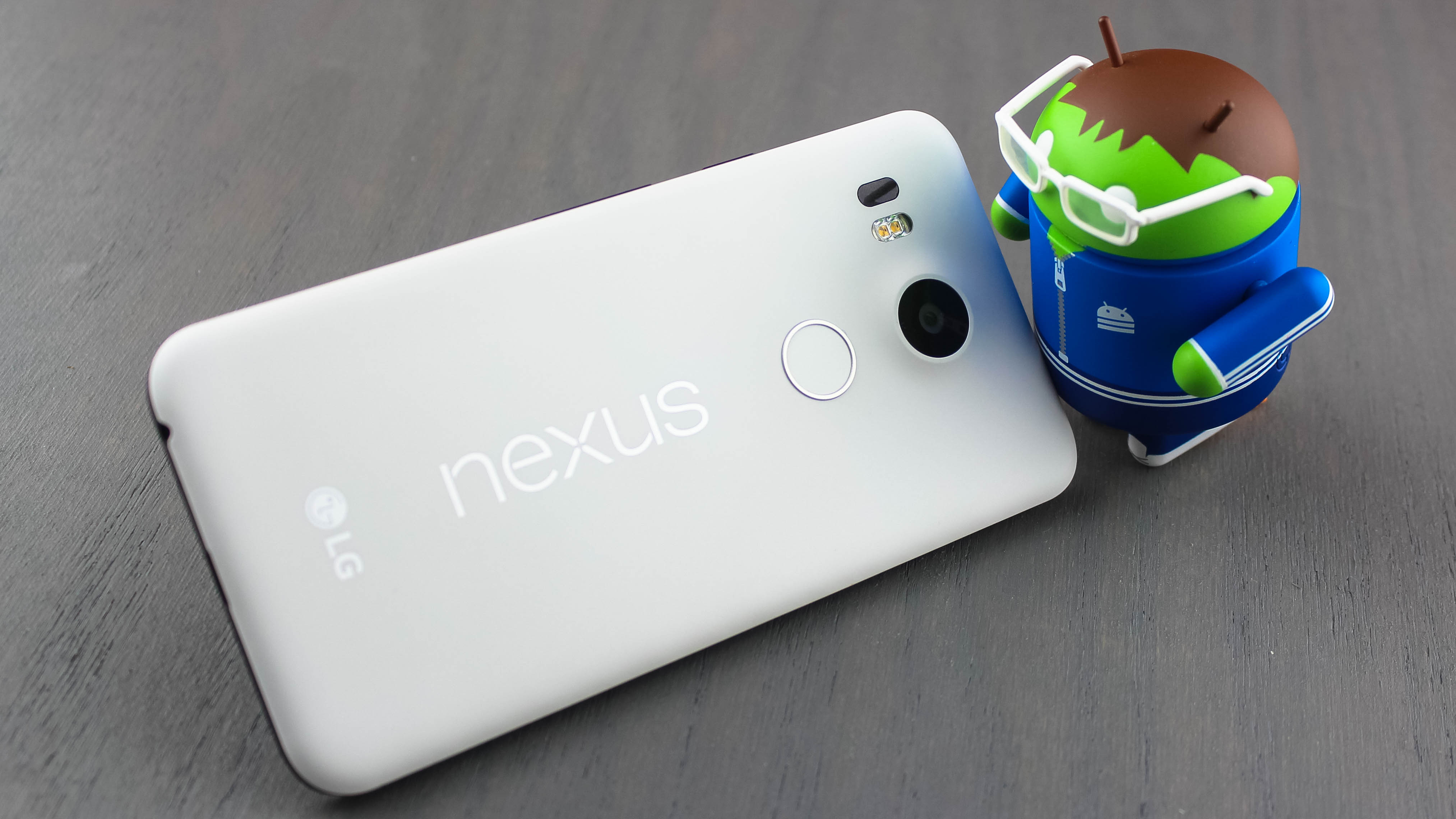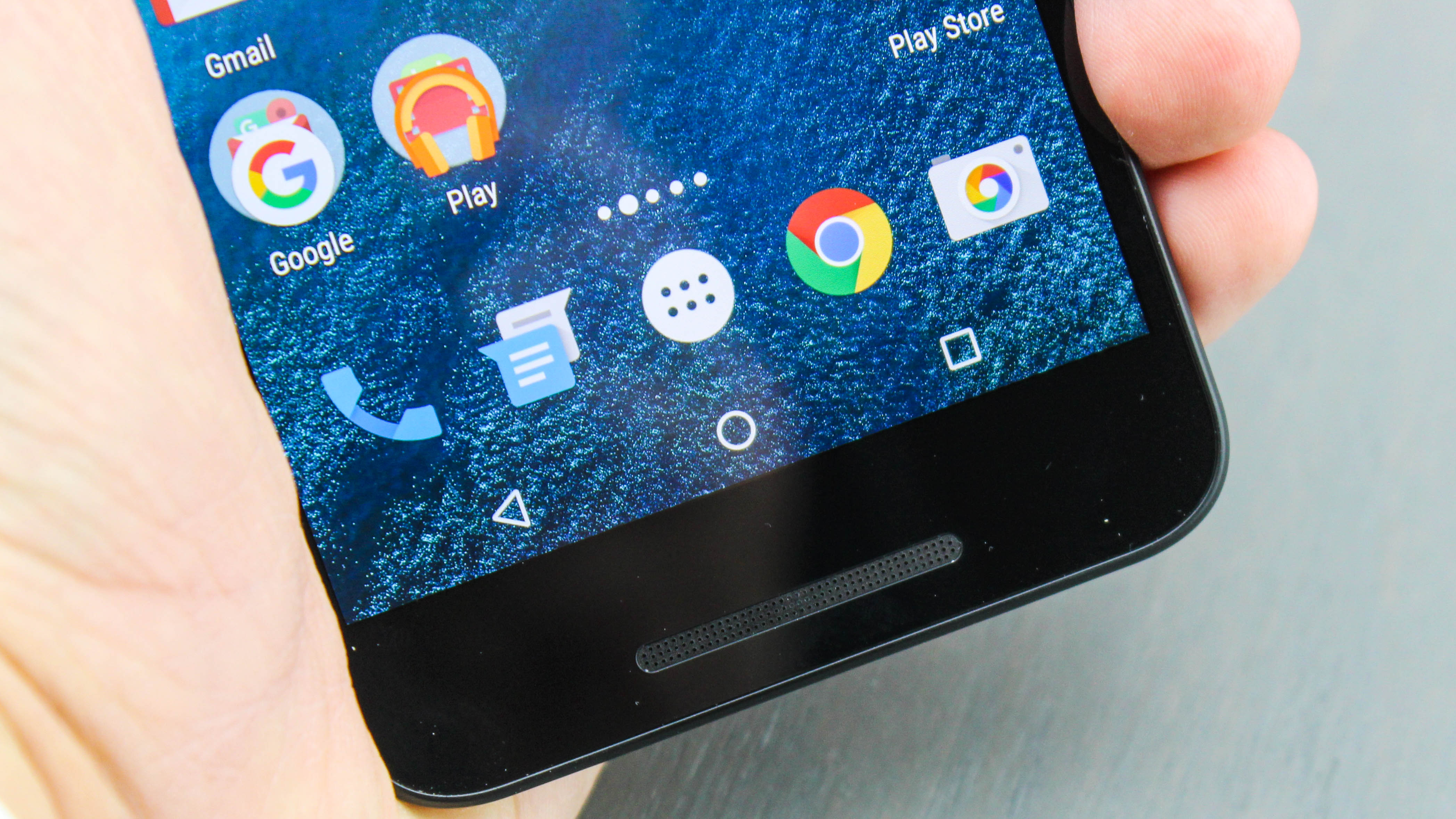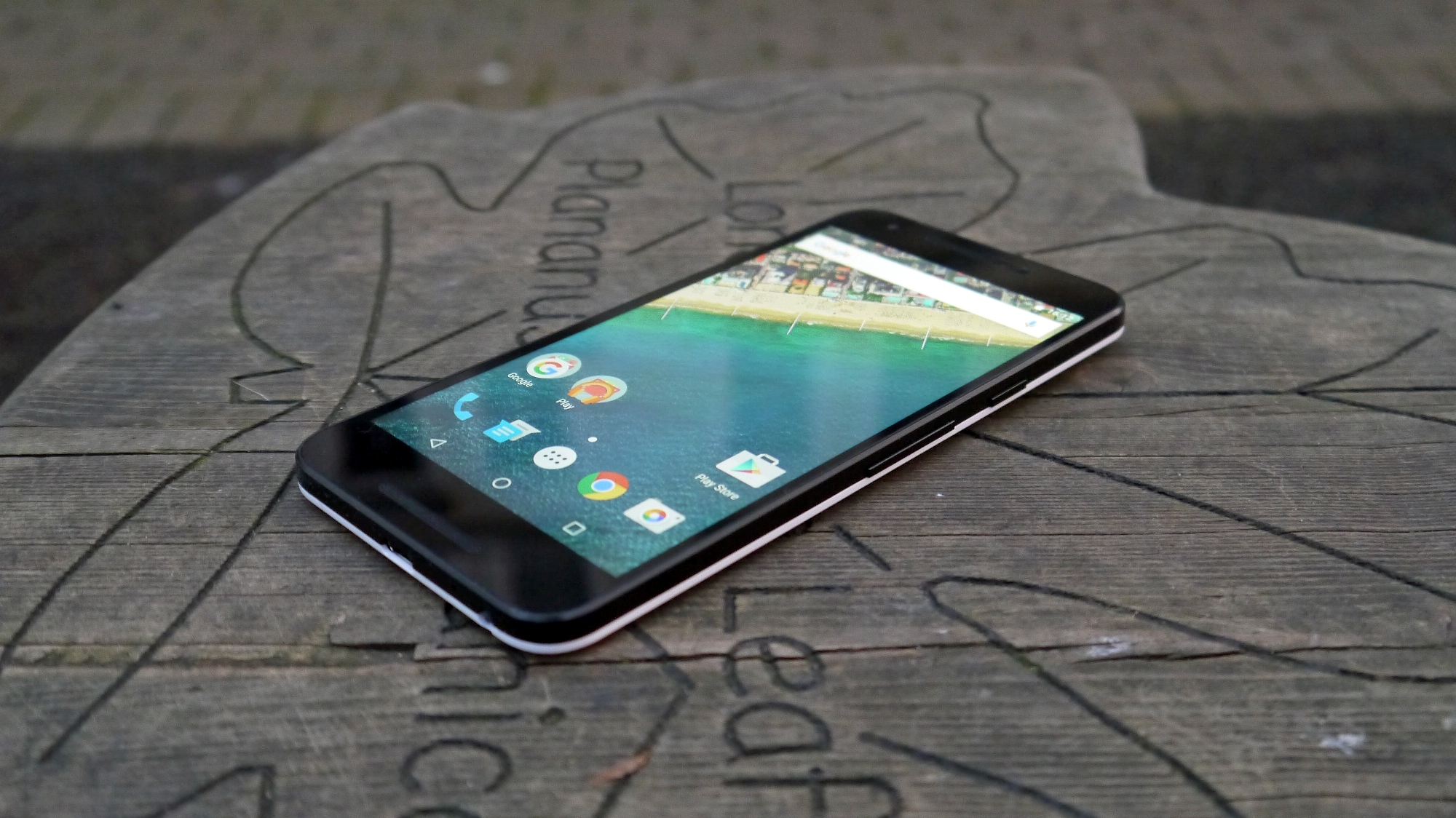Why you can trust TechRadar
You can't peel off the Nexus 5X back cover (without voiding the warranty), but we already know what's inside when it comes to the phone's specs.
In fact, it turns out we were already familiar with the Nexus 5X specs as soon as the LG G4 launched. LG took several cues from its own product line for this Google commissioned phone.
The 5X uses the same with the same Snapdragon 808 processor with a 64-bit hexa-core CPU that's a combined 1.44GHz quad-core chip and 1.82 GHz dual-core chip. A matching Adreno 418 GPU is also integrated into this processor.

There is a difference when it comes to memory, which, among other things, dictates how many apps you can have open at once. The Nexus 5X has just 2GB of RAM, while the LG G4 takes advantage of 3GB of RAM, as does the Nexus 6P.
The 5X is behind similarly-sized Android phones featuring a more comfortable 3GB and 4GB of RAM. Some phones, like OnePlus 3, and Asus Zenfone 3 Deluxe top out at a massive 6GB of RAM. 5X is future-proof, but definitely not as much as other phones out there today.
You're out of luck if you're looking for a microSD slot, too. It hasn't been a part of Nexus phones for several years and, despite the Flex Storage feature that makes expandable storage adoptable and easier to use, it's not part of this phone either.
Instead, the Nexus 5X relies on internal storage of either 16GB and 32GB, depending on how much you're willing to pay.
Performance
- Generally quick performance, but slows down from time to time
- Not as future-proof as it could be
The Nexus 5X performance reflects the horsepower of the LG G4 minus the extra RAM offered by the South Korean manufacturer's true Android flagship.
It begins fast enough with a Geekbench score of 3,504, which is the exact speed readings I get from the LG G4. So far so good. Running it a few more times does shows slowdown, however.
When under pressure by running back-to-back Geekbench tests, the Nexus 5X speeds dropped to 3,025, then 2,439, giving me an average of score of 2,990 after three tests.
Waiting some time between tests and closing other apps, it bounced back to 3,460, then 2,884, then 2,061. In contrast, the LG G4 was always stayed steady at around 3,500.
These inconsistent results are what I've seen from the troubled Snapdragon 810 processor, not the purposely slower and theoretically more stable Snapdragon 808 chip.
I noticed this sputtering score reflected in real-world performance. Specifically, the camera was slow to load when I wanted to take a picture of the sunset as it disappeared into the ocean. Running the GPS chip with Google maps while also playing music through the phone also gave it some literal pause.
Opening multiple apps also showed the 5X lag behind the Nexus 6P in some, but not all cases. Android menus remained flawless, likely due to Android 6.0 Marshmallow being so refined.
This slowdown is nothing too determinantal right now. I got my sunset phone. But if you're going to hold onto this phone for two years, it may start to show its age faster than you'd expect.

I didn't have a problem with the faster Nexus 6P and LG G4, which are a better options if you want phones that are more future-proof and 32GB at their entry-level price.
One chip the LG G4 doesn't have is Google's Android Sensor Hub for activity monitoring that's akin to the powers of Apple's iPhone motion co-processor. This helps with battery life.
Its uses the gyroscope, accelerometer and other sensors to save power and still detect motion for orientation and waking the Ambient Display, all without utilizing the main processor.
The Android Sensor Hub, combined with Android Marshmallow's battery-saving Doze software tricks, is a bigger benefit down the line than the CPU drawbacks.
Way more than phone speed, I always hear about battery life problems from people, and the 5X tilts in the direction of battery life, not chip performance.
Phone call quality
- Coming in loud and clear!
- Speaker phone a little shoddy
When is comes to call performance tests, I found the Nexus 5X to be loud and clear enough compared to the competition, including its bigger Nexus counterpart.
Holding the phone to my ear and using the speakerphone at a normal distance, voices came in clear and I found the same response from the people I talked to on the other end of the line.
That's surprising because the Nexus 6P sounds slightly more muffled on both ends in my tests, which may be in part due to the microphone being a tad further away from me face.
It's also surprising, as the Nexus 5X has shoddy multimedia speakers compared to the 6P. It's more than just speakers on trial, though. Some phones are better with reception than others, and that's what's evident here.
Current page: Specs and performance
Prev Page Display, fingerprint sensor and USB-C Next Page Android Oreo and apps
